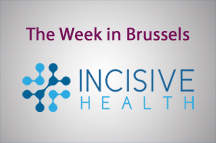 The week kicked off with the opening of the plenary meeting of the European Parliament (EP) in Strasbourg. On the agenda: the future EU-UK relations, the next European Semester, and the future budget of the EU – to name only a few.
The week kicked off with the opening of the plenary meeting of the European Parliament (EP) in Strasbourg. On the agenda: the future EU-UK relations, the next European Semester, and the future budget of the EU – to name only a few.
The decision to move the European Medicines Agency (EMA) from London to Amsterdam after Brexit was another hot topic discussed by Members of the European Parliament (MEPs) this week, and one that has been much-debated in recent weeks, with the loudest voices coming from Italy: A group of Italian MEPs tabled an amendment to the report of fellow national MEP Giovanni La Via in an effort to send the agency to Milan, the city that came second in the competition to house the EMA after a draw of lots. The Italian government, along with the city of Milan, filed a legal complaint to the European Court of Justice (ECJ). The reasoning: Amsterdam might not be able to provide the new premises on time, whereas Milan has a building ready. The EP even went on a fact-finding mission to the Netherlands to understand the problem better. But, ultimately, it looks like it will be Amsterdam - ECJ ruling pending and provided they can deliver the new premises on time.
More important than its location is the future relationship that EMA – as well as other agencies – will have with the UK. A resolution on the future framework of EU-UK relations was passed this Wednesday, ahead of next week’s European Council in Brussels. While Prime Minister Theresa May only recently called for ‘associate membership’ in key EU agencies, including EMA, Brussels has other ideas. The text makes it clear that – as a general principle – a third country like the UK would not have access to EU agency membership once it is no longer in the EU. MEPs ask both the EU and national governments to “prepare adequately for all possible scenarios”, including for continued and safe access to medicines and medical devices in case the EU and the UK fail to reach a deal. They also warn that the EP will only approve the agreement if it maintains a level-playing field between the UK and the Union on public health and consumer protection, among many other areas. Their concerns are also reflected in a joint letter by patient groups in which they urge negotiating parties “to ensure that patient safety and access to medicines are prioritised”.
How to adjust or not the EU budget in light of Brexit was another big question this week. And just how this budget will be distributed remains a pressing issue, at least until 2 May when the European Commission puts forward its proposal for the post-2021 Multiannual Financial Framework (MFF). In another vote cast in Strasbourg on Wednesday, MEPs recognized health policy as a priority for the next EU budget calling for the implementation of the Sustainable Development Goals on public health and health systems, and for support in eliminating health inequalities.
Meanwhile in Brussels, EU Ministers gathered on Thursday for the Social Policy Council, which also included talks about access to health care under the next European Semester. All in all, a busy pre-European Council week.














